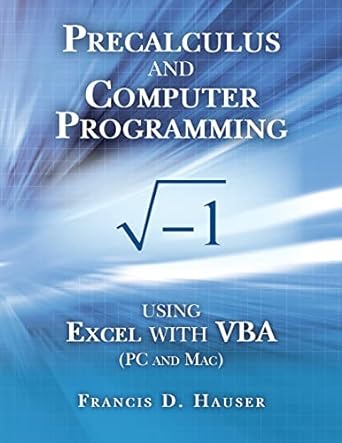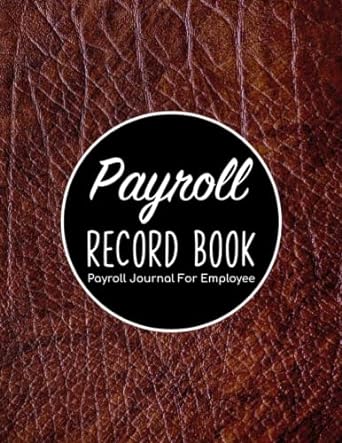Go back


Precalculus And Computer Programming(1st Edition)
Authors:
Francis D. Hauser

Cover Type:Hardcover
Condition:Used
In Stock
Shipment time
Expected shipping within 2 DaysPopular items with books
Access to 30 Million+ solutions
Free ✝
Ask 50 Questions from expert
AI-Powered Answers
✝ 7 days-trial
Total Price:
$0
List Price: $10.65
Savings: $10.65(100%)
Solution Manual Includes
Access to 30 Million+ solutions
Ask 50 Questions from expert
AI-Powered Answers
24/7 Tutor Help
Detailed solutions for Precalculus And Computer Programming
Price:
$9.99
/month
Book details
ISBN: 1548073644, 978-1548073640
Book publisher: CreateSpace Independent Publishing Platform
Get your hands on the best-selling book Precalculus And Computer Programming 1st Edition for free. Feed your curiosity and let your imagination soar with the best stories coming out to you without hefty price tags. Browse SolutionInn to discover a treasure trove of fiction and non-fiction books where every page leads the reader to an undiscovered world. Start your literary adventure right away and also enjoy free shipping of these complimentary books to your door.
Book Summary: The material in this book prepares the reader for calculus. All the topics of precalculus are covered. A good way to learn math is to study the computer programs that do the math in this book. The reader will learn how to write these programs using Excel with VBA, which is readily available in the Microsoft Office program.The exponential, logarithmic, and trigonometric functions are defined. Because they are not algebraic, electronic calculators compute them using approximation methods. The reader is introduced to the use of Taylor series to compute them.One discussion in the book is about the base e exponential function. It’s the only exponential function whose slope is equal to the function itself. This leads to a calculus formula that applies when the rate of change of a variable is directly proportional to the response of the variable. This calculus formula is applied to a spring-mass-damper system. This yields a polynomial, and shows how zeros of this polynomial affect response of the mass. Another discussion shows how computing the determinant of a matrix yields the zeros of a polynomial. This discussion leads to a computer program that finds all the zeros of a general polynomial. This program is listed, explained, and demonstrated. The program can find all the zeros of a fourteenth order Butterworth polynomial.
Customers also bought these books
Frequently Bought Together
Top Reviews for Books
Request nhjkc2v
( 5 )
"Delivery was considerably fast, and the book I received was in a good condition."










